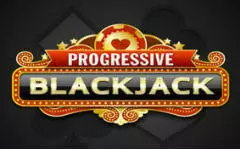Does Progressive Blackjack Betting Work
But like most ideas that sound too good to be true, progressive betting systems – which can also be referred to as progression betting – simply don’t work as advertised. All progressive betting systems suffer from the same fatal flaw. This includes the Martingale, and its close cousins like the Paroli, the Fibonacci, and the D’Alembert. Leon Dubey expanded on 'situational' blackjack systems in his (out-of-print) classic No Need to Count in 1981. Technically, the argument that progressions do not change the house edge is incorrect for blackjack. In practice, however, the classic progressions do not change advantage by more than 0.05%, usually less.
If the first hand from a shoe, you can calculate the probability (win/loss) of that hand with complete accuracy. Many hands have a positive expectation even with skewed distribution of the deck. All this is beside the point; it is not necessary to know the next hand's expectation to determine your bet size.

Does Progressive Blackjack Betting Worksheet
A simple way to bet more when you are winning is to slowly progress your bets after a win and decrease your bet to the minimum when you lose. This is known as a positive progressive system. If you are going to try any type of betting system, you should only try a positive progression. Raising your bets by one unit at a time is one of the keys to making a blackjack betting progression work. As soon as you lose a hand you will begin the progression again with the minimum bet. If you follow the four rules listed above, and combine your progression system with an understanding of card counting and basic blackjack strategy, you will become a blackjack legend.
You can calculate the probability of all hands with complete accuracy. Sometimes, if there are excessive tens and aces still in the shoe, they will have a positive expectation. But if you aren't keeping track of these cards, i.e. counting, you have no extra knowledge of the cards likely to be dealt, and therefore the expectation is exactly what it would be for the first hand. (i.e. negative)

